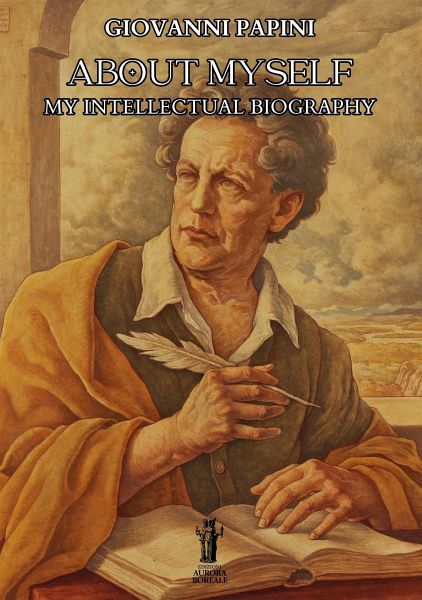
About Myself. My intellectual biography (eBook, ePUB)

PAYBACK Punkte
1 °P sammeln!
Giovanni Papini, journalist, essayist, novelist, writer, poet, literary critic and philosopher, was a controversial literary figure of the early and mid-twentieth century and the earliest and most enthusiastic representative and promoter of Italian pragmatism. Due to his ideological choices, Papini's work was almost forgotten after his death, although it was later re-evaluated and appreciated again: in 1975, Jorge Luis Borges called him an "undeservedly forgotten" author. In 1913 he published his essay Ventiquattro cervelli ("Four and Twenty Minds"), in which he reviewed, with a critical slant...
Giovanni Papini, journalist, essayist, novelist, writer, poet, literary critic and philosopher, was a controversial literary figure of the early and mid-twentieth century and the earliest and most enthusiastic representative and promoter of Italian pragmatism. Due to his ideological choices, Papini's work was almost forgotten after his death, although it was later re-evaluated and appreciated again: in 1975, Jorge Luis Borges called him an "undeservedly forgotten" author. In 1913 he published his essay Ventiquattro cervelli ("Four and Twenty Minds"), in which he reviewed, with a critical slant and with great philosophical scrutiny, the life and works of great personalities of history and literature such as Dante Alighieri, Leonardo Da Vinci, George Berkeley, Herbert Spencer, Friedrich Nietzsche, and, finally, himself! From Four and Twenty Minds, translated into English by Ernest Hatch Wilkins and published in the United States in 1922, we have drawn the brief, polemical and ironic intellectual self-presentation of the great Italian writer. About himself he wrote, with subtle irony: «Giovanni Papini does not need to be introduced to our readers. Every one knows, his friends with even more certainty than his enemies, that he is the ugliest man in Italy, so repulsive that Mirabeau would seem in comparison an academy model, a Discobolus, an Apollo Belvedere. And since the face is the mirror of the soul, as the infinite wisdom of the race informs us in one of its proverbial condensations of experience, no one will be surprised to learn that this Papini is the scoundrel of literature, the blackguard of journalism, the Barabbas of art, the thug of philosophy, the bully of politics, the Apaché of culture, and that he is inextricably involved in all the enterprises of the intellectual underworld».
Dieser Download kann aus rechtlichen Gründen nur mit Rechnungsadresse in A, B, BG, CY, CZ, D, DK, EW, E, FIN, F, GR, HR, H, IRL, I, LT, L, LR, M, NL, PL, P, R, S, SLO, SK ausgeliefert werden.













